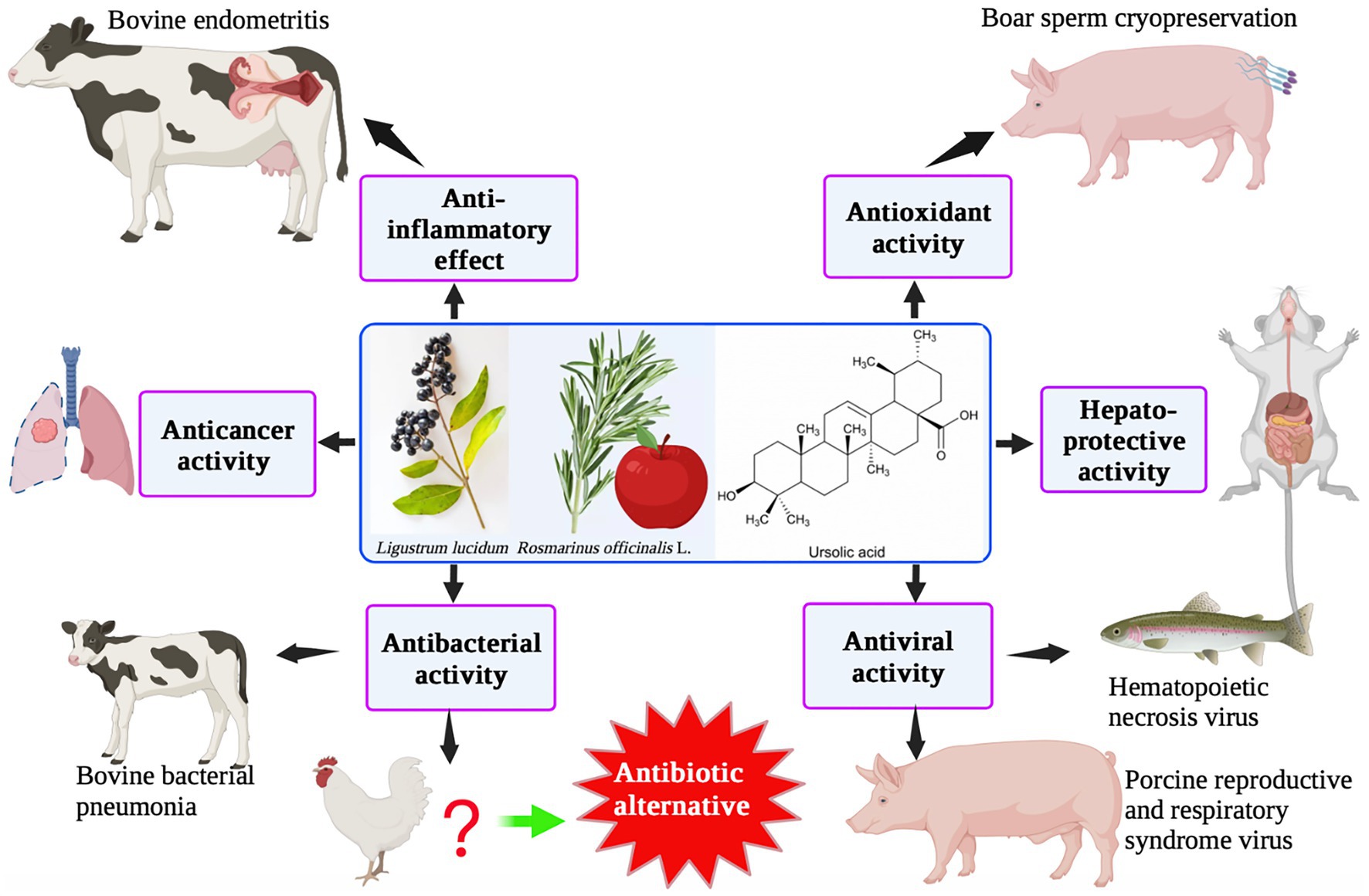Pet owners are more stressed than ever over their pets' health, and they're seeking out means of keeping them well beyond food and shelter. One of those natural healing solutions is ursolic acid powder, a naturally derived item that boasts many potential health benefits. So why add it to your dog's or cat's menu? Let's dig in on what ursolic acid is, what it does, and how it can keep your pet healthy and long-lived.

What is Ursolic Acid?
Ursolic acid is a pentacyclic triterpenoid compound found in apple peels, cranberry peels, rosemary, thyme, and other herbs. Used traditionally in herbal medicine, ursolic acid is renowned for:
- Antioxidant
- Anti-inflammatory
- Metabolic and muscle-supportive
- Anti-cancer and anti-obesity (under research)
Its natural origin and promise of health benefits make it a desirable addition to your pet's wellness program.

How Ursolic Acid Powers Pet Health
1. Dazzling Antioxidant Protection
Free radicals-unstable chemical by-products of natural metabolism or stress from the environment-can damage your pet's cells, causing aging, inflammation, and disease. Ursolic acid is a potent antioxidant that neutralizes free radicals and protects tissues from oxidative damage.
Benefit
Maintains overall health, retards the aging process, and maintains energy and vitality.
2. Anti-Inflammatory Support
Inflammation is hiding under most pet health problems, including arthritis, skin allergies, and gastrointestinal problems.
Ursolic acid spontaneously inhibits inflammatory processes (e.g., NF-κB) to reduce pain and inflammation.
Benefit:
Soothes prostates arthritis pain, soothes skin irritations, and maintains healthy organ function.
3. Muscle and Metabolic Health
In laboratory testing, urosolic acid was discovered to stimulate muscle growth with suppression of fat gain (Kunkel et al., 2011). This is especially beneficial for older pets, obese pets, and muscle-wasting breeds of dogs.
Benefit:
Sustains lean body muscle, healthy weight, and overall mobility.
4. Possible Cancer Prevention
Current research suggests ursolic acid may have anti-cancer properties by blocking the growth of cancer cells and inducing apoptosis in faulty cells (Liu, 1995). Although research continues, the potential is of interest to human and veterinary medicine alike.
Offers a secondary degree of cellular protection, along with other methods of prevention for cancer such as nutrition and routine visits to a vet.

Longevity and Quality of Life
Healthy aging life doesn't just mean adding years to the life of your pet; it means getting those years lively, comfortable, and full. By inhibiting cell damage, reducing inflammation, and responding on healthy muscles and metabolism, ursolic acid can be a part of:
- Enhanced mobility and joint health
- Healthier coat and skin
- Enhanced immune system
- Less fluctuating energy levels
This means that your pet can live life to the best of their ability-whether they're playing fetch, investigating the backyard, or just cuddling up next to you on the couch.

Is Ursolic Acid Safe to Administer to Dogs and Cats?
Overall, ursolic acid is pretty safe for most animals when used correctly. That being said, though, there are a few things to note:
Dosages are size and health status adjusted. A commonly applied rule of thumb is:
- Dogs: 5–10 mg/kg daily
- Cats: 3–5 mg/kg daily
Titrate from the low end with veterinary guidance.
Side Effects
Some animals will experience mild gastrointestinal distress, like vomiting or diarrhea, when they first start ursolic acid. Better to titrate up from low.
Drug Interactions
If your pet is on other medications (especially anti-inflammatory or metabolic medicines), talk to your vet before supplementing with ursolic acid.

How to Supplement with Ursolic Acid
Ursolic acid is often available in powder form that can be added to moist food, treats, or home diets. Some quality pet supplements are also in capsule or chewable formats.
Tip:
- Combine it well with food for even distribution.
- Use small amounts and monitor your pet's response.
- Store the powder in a dry and cool place for optimal effectiveness.
Including a Balanced Diet
Do not also forget that ursolic acid powder is a supplement and not a substitute for a proper and well-balanced diet for breeds. For dogs and cats, a complete and balanced diet provides the required nutrients like fat, protein, vitamins, and minerals. Ursolic acid is added to this base, which maintains your pet's inherent defense and provides them with good health in the long run.

Veterinary Consultation is Key
Always consult your veterinarian prior to starting any new supplement. He or she can recommend the proper dosage, monitor for side effects, and make sure the supplement is incorporated into your pet's overall healthcare plan.
Conclusion
Ursolic acid powder is a wonderful natural supplement that can be a part of your pet's longevity and health. With its anti-inflammatory, antioxidant, and muscle-building properties, it is an excellent addition to an overall pet care regime. As further research in dogs and cats is ongoing, what is seen with laboratory and animal testing suggests the potential for ursolic acid to help pets age well, stay active, and live longer.
If used properly and under the guidance of a veterinarian, ursolic acid powder can be a powerful and safe way to enhance the health of your dog or cat-keep them happy through all stages of life.
References
Kunkel, S. D., Suneja, M., Ebert, S. M., Bongers, K. S., Fox, D. K., Malmberg, S. E.,. & Adams, C. M. (2011). Ursolic acid increases skeletal muscle and brown fat and decreases diet-induced obesity, glucose intolerance, and fatty liver disease. PLoS ONE, 6(6), e20666.
Liu, J. (1995). Pharmacology of oleanolic acid and ursolic acid. Journal of Ethnopharmacology, 49(2), 57–68.
Seo, D. Y., Lee, S. R., Heo, J. W., No, M. H., Rhee, B. D., Ko, K. S.,. & Kwak, H. B. (2018). Ursolic acid in health and disease. Korean Journal of Physiology & Pharmacology, 22(3), 235–248.










